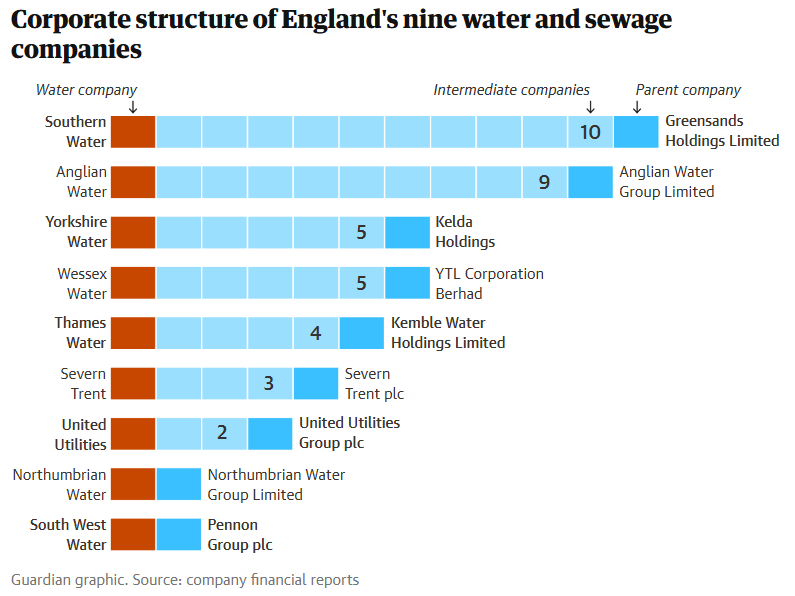Should Water Be Owned?
(And should you buy that expensive water filter from instagram…?)
We all know our water is full of sh*t; shamefully only 14% of English rivers have good ecological status. But there’s more to the story than raw sewage in our rivers and CEOs on £1.7million a year (the AVERAGE salary). Who actually owns our water? And why isn’t it us?
Shareholders in 17 foreign countries own most of England’s water. Companies are investing in the English water business - privatised by Thatcher in the ‘80s - as a quick route to big profits, and now other companies want to sell us filters to make our water less toxic. How does that feel? What about when you hear that there’s only 1 other country on earth (Chile) with the same completely privatised water system as England? And what about when you realise our bills have gone up by 40% in real terms since privatisation?
The traditional left have been calling for public services to be nationalised for decades. But if we can’t trust a ‘left’ government to keep pensioners from freezing in their homes, why should we trust them with our water? Anything in the hands of the state can be used as a political tool, as our friends in Jackson learned during their own water crisis - an avoidable disaster which many pin on underinvestment in black neighbourhoods, and the politically-inconvenient fact that Jackson is a democratic city in a republican state.
The graphic below shows the insane corporate structure of our water companies (credit: The Guardian). Yet another symptom of this failing economy and broken political system - built to confuse and alienate ordinary people, and therefore cut us out of the conversation entirely. If we can’t even identify who is profiting from our direct debit, we’re unlikely to ask any more uncomfortable questions. We learn not to ask at all.

But to be born on this wet planet is to dance in puddles and swim in the waves, to water our crops and pray for rain. In Hull, we live our entire lives alongside water. What if we, the people, owned and controlled our water democratically? What if we sat on water assemblies just like we do jury duty, and managed our water systems in the interests of people and planet, not shareholders? Now is the time for questions.
Credit: The Guardian, weownit, takebackwater.uk
04 October 2024
By Gully Bujak
← Back to the blog